Sorry, this entry is only available in German.
Happy Birthday Nouvel Ensemble Contemporain!
La Chaux-de-Fonds’ Nouvel Ensemble Contemporain (NEC) celebrates its 25th anniversary this year and invites to its anniversary weekend. “Time to Party” is the event tied to the big birthday concert of Saturday March 14, with works by Anton Webern, Claire-Mélanie Sinnhuber and Daniel Zea, followed by a marathon of mini-concerts from Louis Jucker’s ‘Suitcase Suite’ on Sunday.
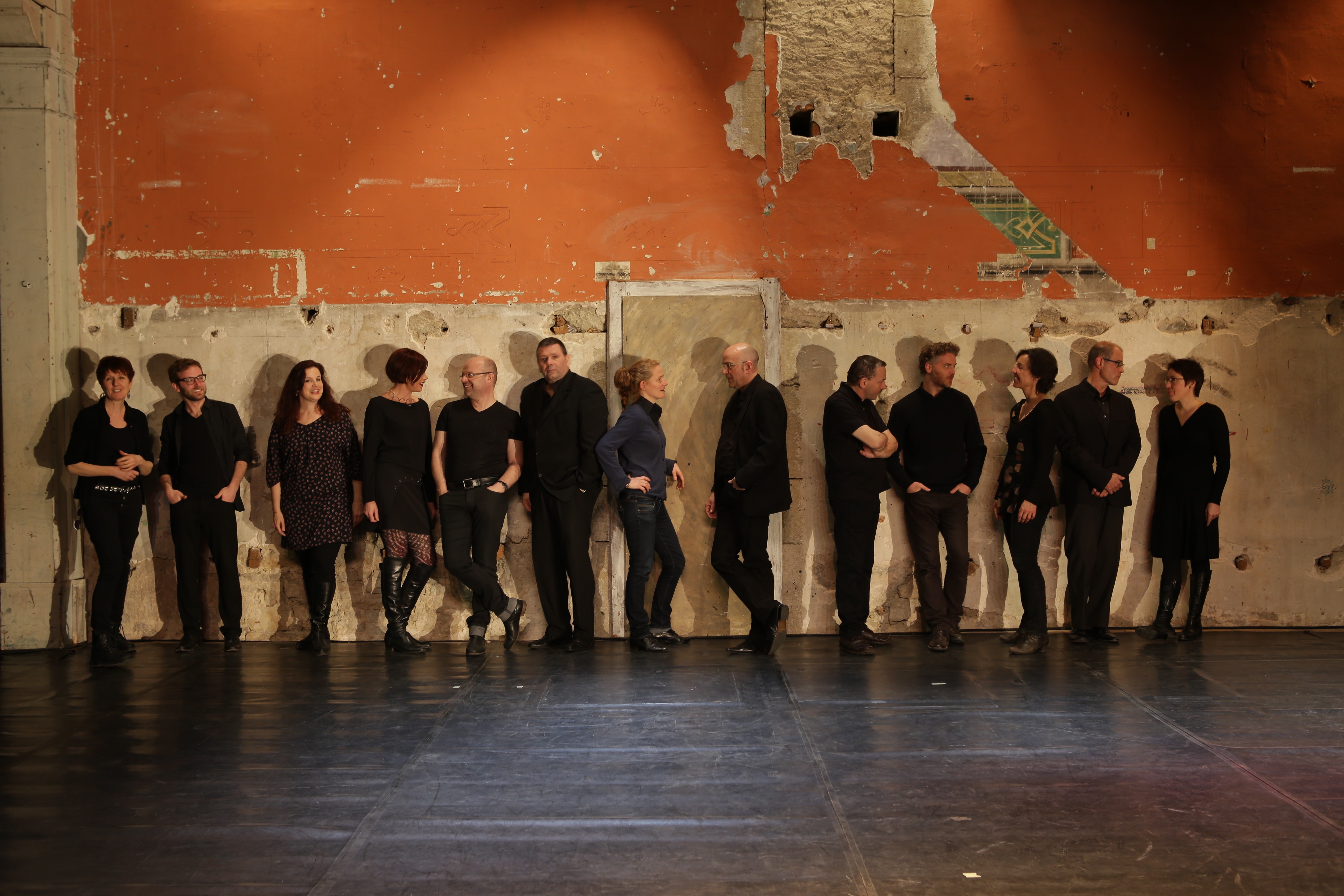
Jaronas Scheurer
“Most people don’t immediately think of the NEC if questioned about contemporary music in Switzerland, but as soon as the ensemble is mentioned, it brings a smile to their faces.” – says Antoine Françoise, pianist and artistic director of the Nouvel Ensemble Contemporain (NEC, when asked regarding the secret weapon or superpower of NEC. Putting a smile on your face sums up NEC’s philosophy pretty well. About 25 years ago, a group of musicians from La Chaux-de-Fonds gathered together to share their passion for new music.
A group of friends – a solid institution
A lot happened in the meantime: the group became a solid institution in the Swiss music scene and new musicians, including Antoine Françoise, joined. He first joined NEC as pianist, about 13 years ago and replaced founding member Pierre-Alain Monot as artistic director in 2016.
Antoine Françoise dirigiert das Nouvel Ensemble Contemporain in: Mathis Saunier, Palindrome for String Orchestra, am Antigel Festival Genève 2019,
For Françoise, ongoing change is essential. He intends to remain artistic director as long as he’ll be able to change the NEC’s aesthetic and if he can no longer do so, he hopes to hand over the reins to someone with new and fresh ideas. But what remains despite all the change is the common love for music, so NEC can still be summed up as a group of friends who want to share their passion for new music.
A full week of partying
To celebrate its 25th anniversary, NEC is presenting itself and La Chaux-de-Fonds with an entire week of concerts, beginning with a series of mini-concerts presenting solo pieces in various city locations. On Friday, the ensemble will be equipped with self-made instruments to perform the “Suitcase Suite” by punk rock guitarist Louis Jucker, on Saturday NEC will perform the big birthday concert with the fitting title “Time to Party” and for the finale, on Sunday, the NEC musicians will present the mini-concerts’ solo pieces in public.
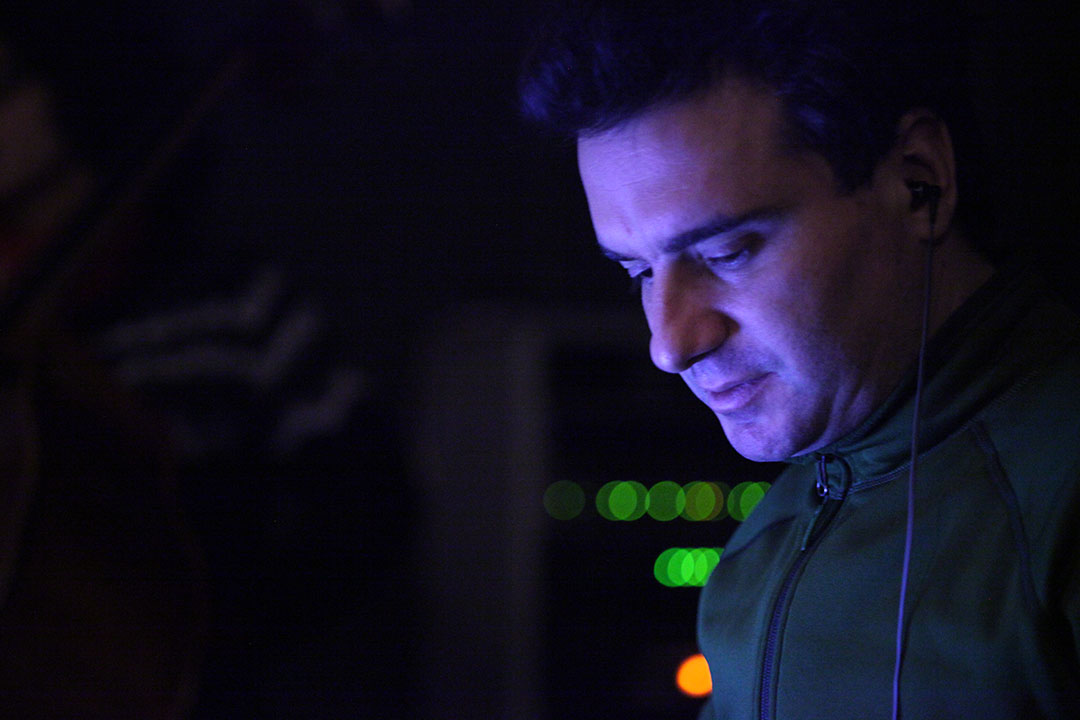
Saturday’s concert will be particularly representative of the Nouvel Ensemble Contemporain: starting with 1940’s Variations for Orchestra, op. 30 by Anton Webern, one of 20th century music most important work, arranged for ensemble by its former director, Pierre-Alain Monot followed by “Soliloque” by French composer Claire-Mélanie Sinnhuber. It is the first time that NEC will play a one of Sinnhuber’s works. The piece “Pocket enemy” from 2017 by Colombian composer Daniel Zea, who has worked with NEC on several occasions and composed “Pocket enemy” for Antoine Françoise, will complete the evening.
Daniel Zea, Pocket enemy, Ensemble Vortex, 2017
So first a classic of the 20th century with a greeting to the former conductor Pierre-Alain Monot, followed by a more recent work by a friend of the ensemble and the discovery of a new composer – a good summary of NEC’s philosophy. All three pieces are written for a large ensemble so that, as many NEC musicians as possible, can be involved. Françoise’s only rule for putting together NEC’s programmes is the following: “I don’t shape the programmes to please the audience, but to please my musicians and when musicians are happy, I know the audience can feel it.” Goes with NEC’s goal to put a smile on everyone’s face…
Jaronas Scheurer
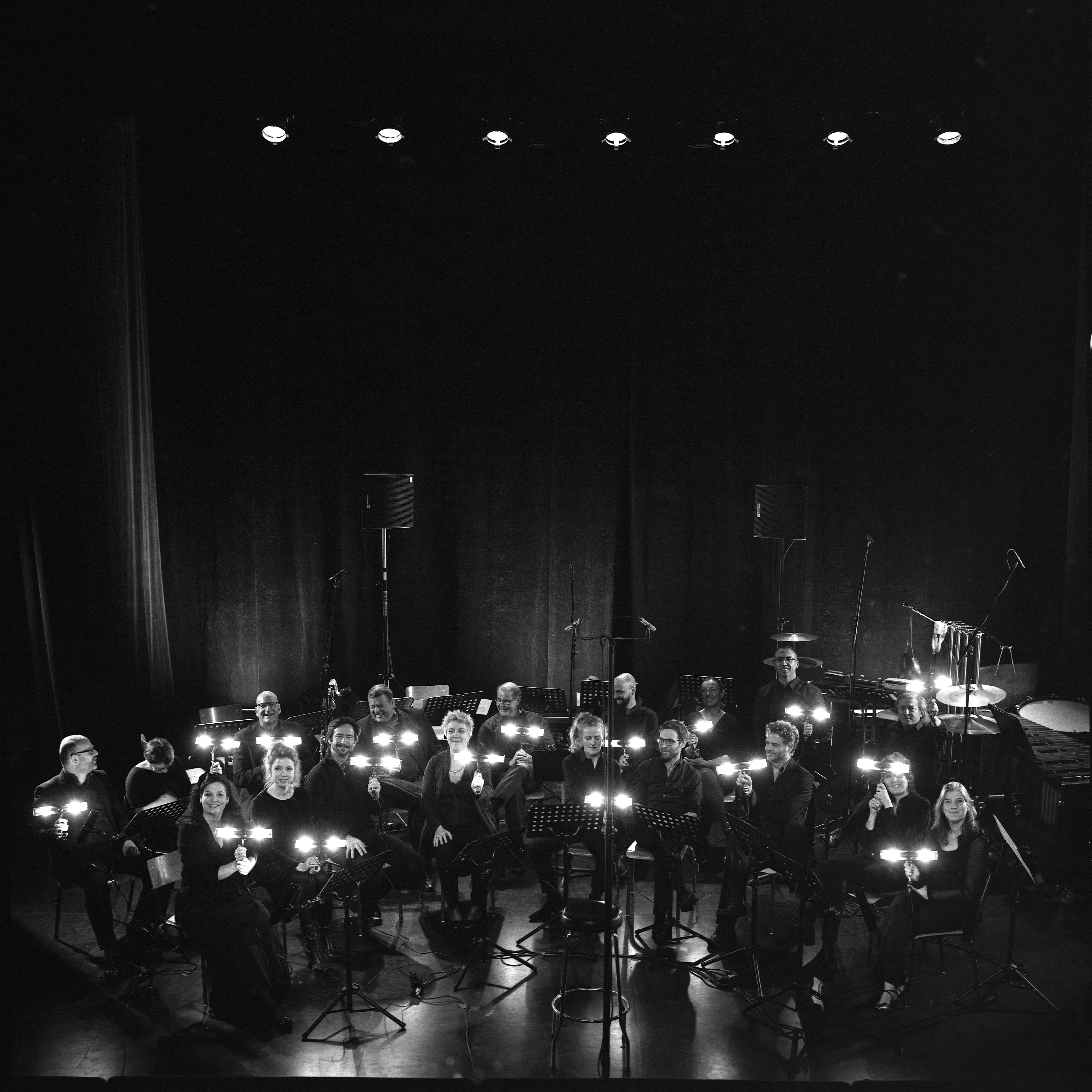
friday, march 13, 6:30pm, opening and vernissage, Théâtre ABC, Ausstellung: Annick Burion & Pablo Fernandez (opening hours Sa: 11-24h; So: 11h-20h), musical intervention: Matthieu Grandola
8:30pm Louis Jucker, The Suitcase Suite, Temple Allemand
10pm Marcel Chagrin, tourneur de 78 tours
saturday, march 14, 8:30pm, Time to party, Temple Allemand La Chaux-de-Fonds:
Anton Webern, Variations pour orchestre op. 30, nouvel arrangement pour ensemble Pierre-Alain Monod, création
Claire-Mélanie Sinnhuber, Soliloque pour ensemble
Daniel Zea, Pocket enemy pour sampler et ensemble
sunday, march 15, from 2pm, Miniatures, Temple Allemand La Chaux-de-Fonds
2pm Miniatures I
2:40pm Pierre Jodlowski: Typologies du regard pour piano et électronique
3pm Apéritif SONART
4pm Miniatures II
4:40pm Matthieu Grandola, flûte: pieces from Eliott Carter, Toru Takemitsu, Kaija Saariaho, Ofer Pelz
5:15pm MIniatures III
25ans le NEC: SRF 2 Kultur, Kultur aktuell, 12./13.3.20: editorial Annelis Berger
Nouvel Ensemble Contemporain, Daniel Zea, Claire-Mélanie Sinnhuber, Louis Jucker, SONART – Musikschaffende Schweiz
broadcasts SRG:
RTS, musique d’avenir, editorial: Anne Gillot
SRF 2 Kultur:
Aktuell & Kultur kompakt, 12./13.3., editorial Annelis Berger
Musikmagazin, 14./15.3., editorial Annelis Berger
neo-profiles: Nouvel Ensemble Contemporain, Daniel Zea
Percussion Threads from Zurich to Mzansi
The Percussion Threads from Zurich to Mzansi concert at Zurich’s Rietberg Museum, is a meeting of both musicians and compositions from Switzerland and South Africa and will subsequently go on tour in the two countries.
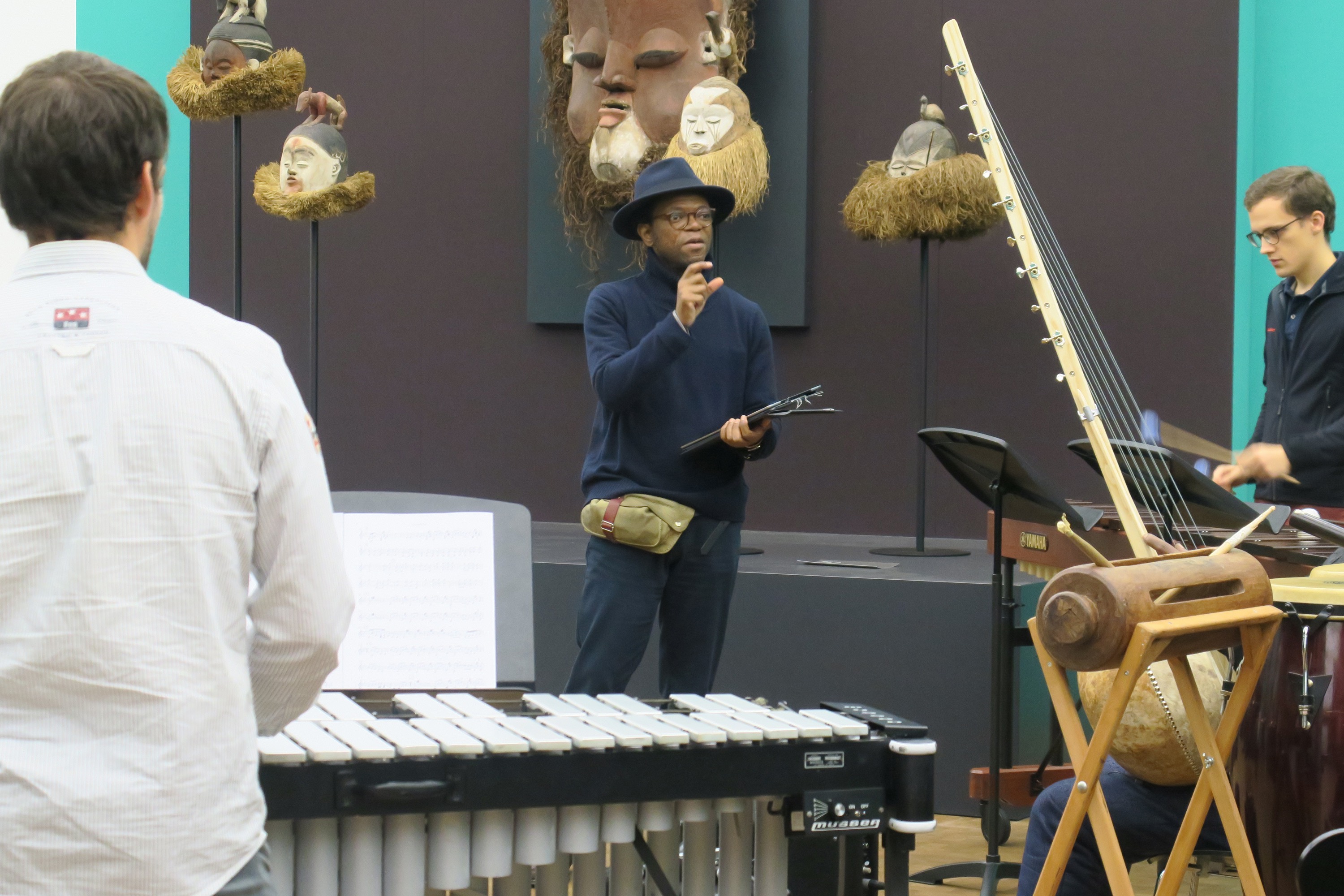
Katja Heldt
How does classical music sound in the 21st century? How does musical exchange work in the decolonization era? And in what context should it take place?
The Swiss initiative guerillaclassics is engaged in a wide range of projects, searching for answers and investigating the current relevance and formats of classical music. In the spring of 2020, Zurich’s Cosmic Percussion Ensemble will tour South Africa with local musicians.
Cosmic Percussion Ensemble, Trailer
The event will be launched on March 6th with a concert at Zurich’s Rietberg Museum, in which new works by Swiss composer Nik Bärtsch and South African composer Neo Muyanga will be performed as part of the current FIKTION KONGO exhibition.
Hiromi Gut, artistic director and founder of guerillaclassics, who initiated this project, explains: “The Congo exhibition features an exciting change of perspective in which young Congolese artists are granted a voice. Our tour is structured in the same way, we work with musicians from Switzerland, Angola, Congo and South Africa and wish to explore different ways of playing”.
Radical and new approach to classical and contemporary music
Since its foundation in 2017, guerillaclassics has been committed to radically rethink both classical and contemporary music’s long-established structures, regarding both concert business as well concept and settings. Their diverse programmes pursue the clear goal of bringing what was usually relegated to concert halls into everyday life. The more unusual the setting, the better, whether on the road, construction sites or at a sport event in the mountains with a local yodelling club: guerillaclassics operates at the intersection of music with drama, dance and theatre, by changing the context of musical experiences with unusual concert formats.
“With guerillaclassics I wanted to fulfill the dream of making classical music an everyday part of society. To achieve this, the music must take place outside the confines of a shielded concert hall and brought into the various communities” says Hiromi Gut. For Gut, dealing with the history of apartheid and the strong social differences that still exist in South Africa is an important aspect of this project: “We play at sunrise for the commuters at Park Station in Johannesburg, Africa’s largest train station. Playing in a public space has a special relevance as access to classical European music is still associated with a white minority in South Africa”.
A link between cultures
For the South Africa tour as well as the concert at Rietberg Museum, the two composers Nik Bärtsch and Neo Muyanga have written pieces that deal with cultural exchange but also with their musical origins, placed in a larger context. The works of Zurich composer Nik Bärtsch explore different musical genres and traditions, searching for connections between cultures.
Nik Bärtsch, Ronin: Modul 45
For the journey, Bärtsch composed COSMIC APPROPRIATION for the four percussionists of the Cosmic Percussion Ensemble. He describes his approach as follows: “When composing, I like to use instruments as well as ritual techniques from different regions of the world and I am personally much more interested in how sound and playing techniques can be used, rather than in the origin of instruments. I don’t believe that music is a universal language, but I do think that there are certain codes, affinities as well as resonance and spaces that are used in the production and reception of music who are in fact universal”.
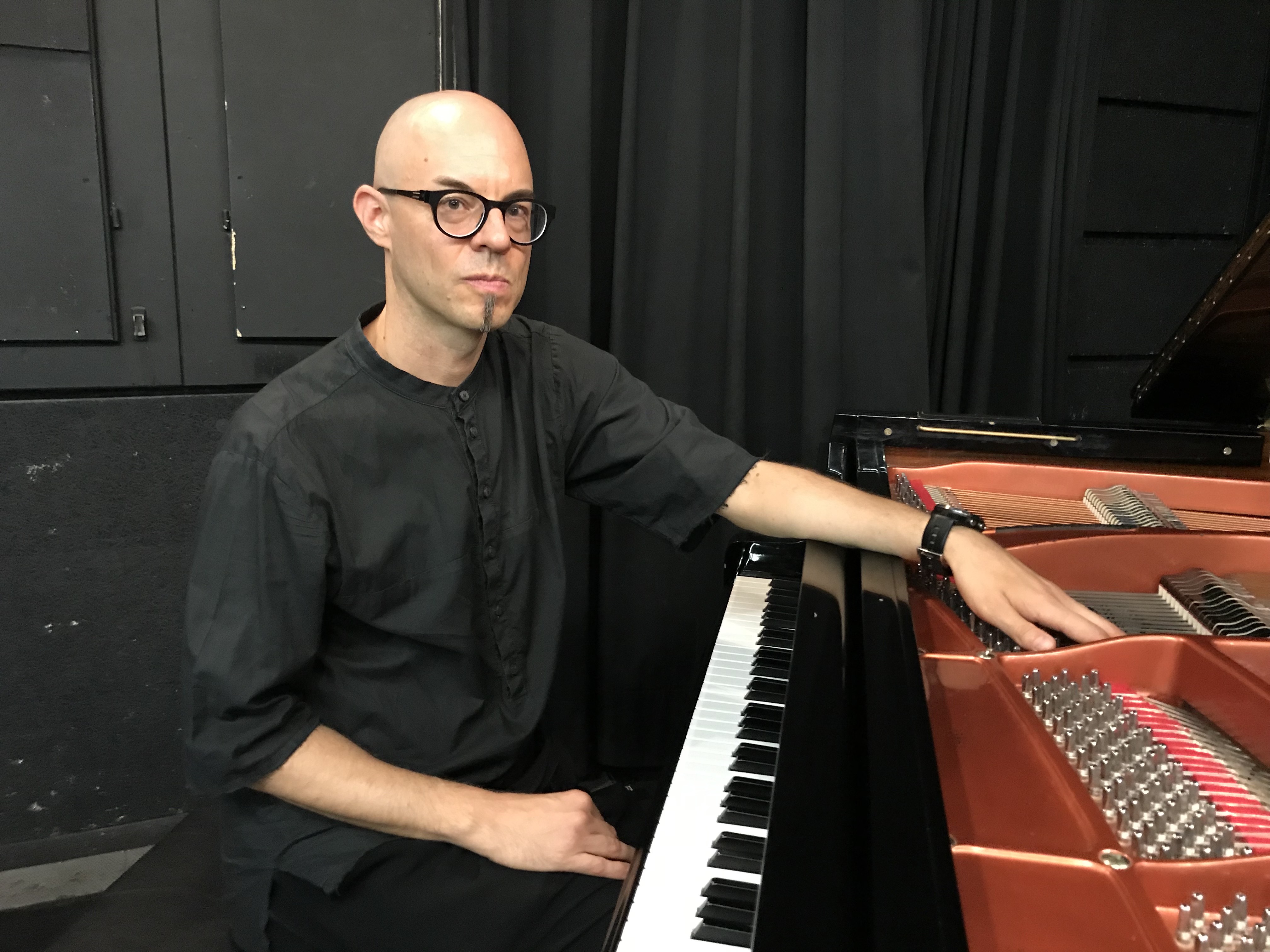
Neo Muyanga also uses various percussive traditions and traditional instruments like the ngoni or uHadi as well as the voice in his composition. The piece combines written elements with improvisation and is designed to incorporate playing styles from different regions such as the Xhosa tradition.
The audience is invited to search for the origins and roots of music and to discover something new in unusual contexts as well as to hear the old in a new way.
Katja Heldt
Trailer guerillaclassics: Percussion Threads from Zurich to Mzansi
Concerts
6.03.2020 19h: Rietberg Museum Zürich (ausverkauft)
8.04.2020, 19:30h: Club Exil, Zürich, extra concert
Nik Bärtsch, guerillaclassics, Cosmic Percussion Ensemble, Museum Reitberg, Neo Muyanga
neo-profiles: Nik Bärtsch, guerilla classics, Cosmic Percussion Ensemble
(Deutsch) reclaim postmodernity – ABGESAGT!
Chan e See dänke?
Can a lake think? A musical tribute to the city of Biel
World premiere of Jean-Luc Darbellay’s melodrama “Belena” on February 19, 2020 at Kongresshaus Biel
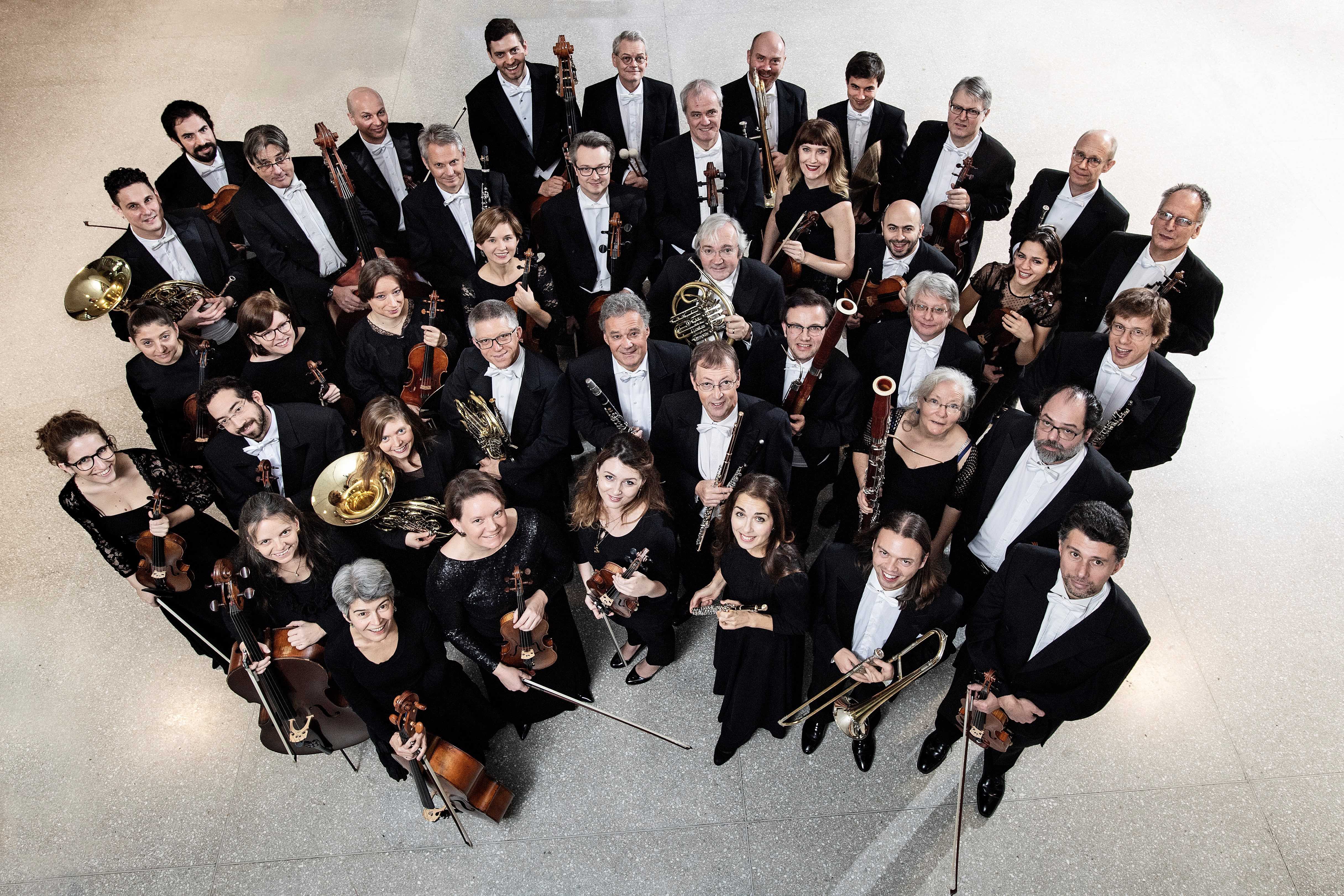
Cécile Olshausen
The Biel Solothurn Symphony Orchestra is celebrating its 50th anniversary and to mark the event, its main conductor Kaspar Zehnder has commissioned Bernese composer Jean-Luc a bilingual work focused on the city of Biel and its surroundings.
Accordingly, Darbellay decided to collaborate with two different writers: French-speaking poet and novelist François Debluë and Guy Krneta, who writes his poetry in Swiss-German-dialect, approaching their complex texts musically in the form of a melodrama.
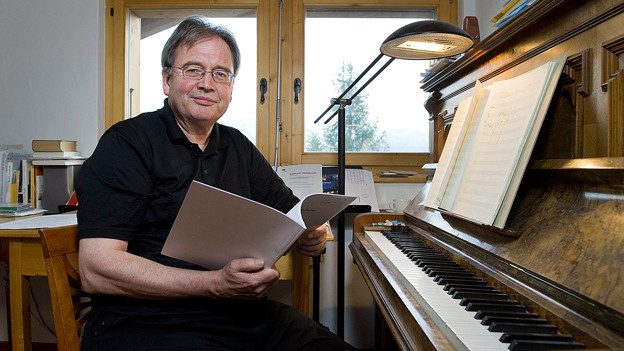
Rousseau and melodrama
This genre dates back to the late 18th century and is nowadays rather neglected. Between and on top of the music the words are spoken instead of sung. Its inventor is none other than the Geneva-born, French-Swiss philosopher and composer Jean-Jacques Rousseau, who in 1770 composed the very first melodrama in the history of music: “Pygmalion”.
Rousseau is at the core of Darbellays composition, as François Debluë’s text is based on a fictitious letter by Robert Walser concerning Jean-Jacques Rousseau, namely his stay on the St. Petersinsel in Lake Biel. Rousseau claimed to have spent the best time of his life there in the autumn of 1765. But the city of Berne’s Secret Council expelled the famous philosopher, also from Môtier (Val-de-Travers), where he lived with his companion Thérèse Levasseur, where he was no longer welcome and – so the story goes – stones were thrown at them. This prompts Debluë to a wide rêverie about stones. “Je sais le langage des pierres”. (French in the original text)
Guy Krneta reacts to Debluë’s text with an artistic Berndeutsch language study and develops a monologue on water set on the shores of Lake Biel “Chan e See dänke? Was würd’r dänke, wen’r chönnt dänke? und Steine Het e Schtei mau grännet?”. (Swiss-German in the original text)
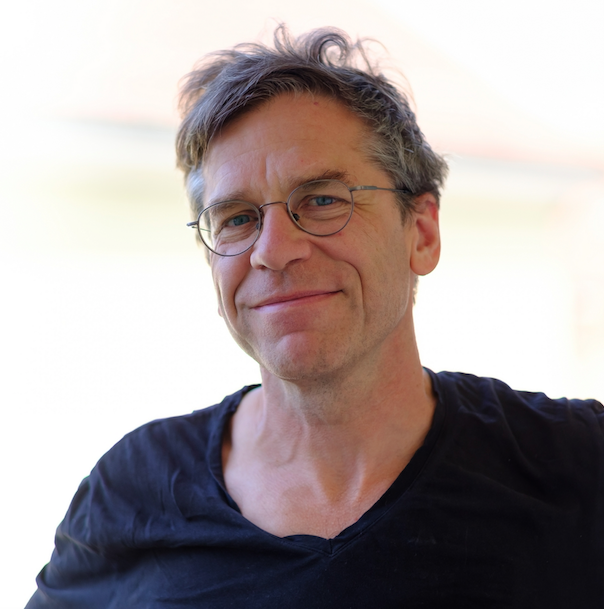
“Schifere” and “Steineln”
The act of “ricochet” or throwing stones to make them bounce on water – “ds’Schifere” in Bernese dialect – is the central connection between Debluë’s and Krneta’s texts. As Krneta puts it: “Wen e Schtei über ds Wasser gumpet, vo Oberflächi zu Oberflächi, chan i ahne, wi’s isch gsi, wo d Schteine no gläbt hei, wo si gfloge sy wi Vögu” (When a stone jumps on water, from surface to surface, you can sense how it must have been, in the old days, when stones were still alive and flying like birds). In Debluë, it is round soft pebbles that bounce on water; if there were children there, they would compete in throwing them (“Steineln”). Mais il n’y a pas d’enfant (But there are no children) – in allusion to Rousseau, who placed his children in orphanages.
,Wenn ich denke‘, Guy Krneta for Jean-Luc Darbellay, Play SRF, Morgengeschichte, 5.10.2019
Jean-Luc Darbellay has decided to compose for this complex literary model, in a way that music does not try to compete with literature, but rather supports the words. The speaker should be able to develop freely and rhythm is therefore never precisely set. Sometimes music takes on an illustrative function, as for example in the case of stones flying over water. But often Darbellay simply leaves a chord to resonate or even completely renounces any presence of sound. In this way, both spoken languages come to full effect in their characteristic style and peculiarity.
Jean-Luc Darbellay, Pour une part d’enfance, für Sprecherin und Ensemble, Melodram über einen Text von François Debluë, 2018
The title “Belena” also refers to Biel, for the city’s name can be traced back to “Bĕlĕna” in linguistic history, although researchers still don’t know exactly what it refers to. Maybe a Celtic sun goddess? Or Belenus as a god of power? It remains a puzzle to this day – but fits this thoroughly “Biel”-related music-theatrical work perfectly.
Cécile Olshausen
Jean-Luc Darbellay, Belena, UA 19.2.2020 SOBS
The Biel Solothurn Symphony Orchestra makes its world premiere recordings available on neo.mx3, like the “Concerto for Violoncello and Orchestra” (world premiere) by Jost Meier, recorded November 13, 2019 at the Kongresshaus Biel, you can stream here:
Jost Meier, Concerto for Violin and Orchestra, UA 13.11.2019 SOBS
Carnaval Bilingue, 6. Sinfoniekonzert SOBS, 19. Februar 2020, 19:30h, Kongresshaus Biel, Sinfonie-Orchester Biel Solothurn, Kaspar Zehnder – Leitung, Isabelle Freymond – Sprecherin
Programm:
Antonin Dvorak, Carnaval, Konzertouvertüre op. 92
Jean-Luc Darbellay, Belena, Melodramatisches Konzert für eine Sprecherin und Orchester
Joseph Lauber, Sinfonie Nr.1
Sinfonie Orchester Biel Solothurn, Jean-Luc Darbellay, Guy Krneta
Sendungen SRF 2 Kultur: Im Konzertsaal, Do, 26.3.2020, Di, 19.5.2020
neo-profiles: Jean-Luc Darbellay, Sinfonie Orchester Biel Solothurn
“Tausendsassa” of contemporary music
Basel Sinfonietta’s next concert will be dedicated to Heinz Holliger’s 80th birthday and on the same occasion, neo.mx3.ch – the new SRG platform – will be launched in the German-speaking part of Switzerland.
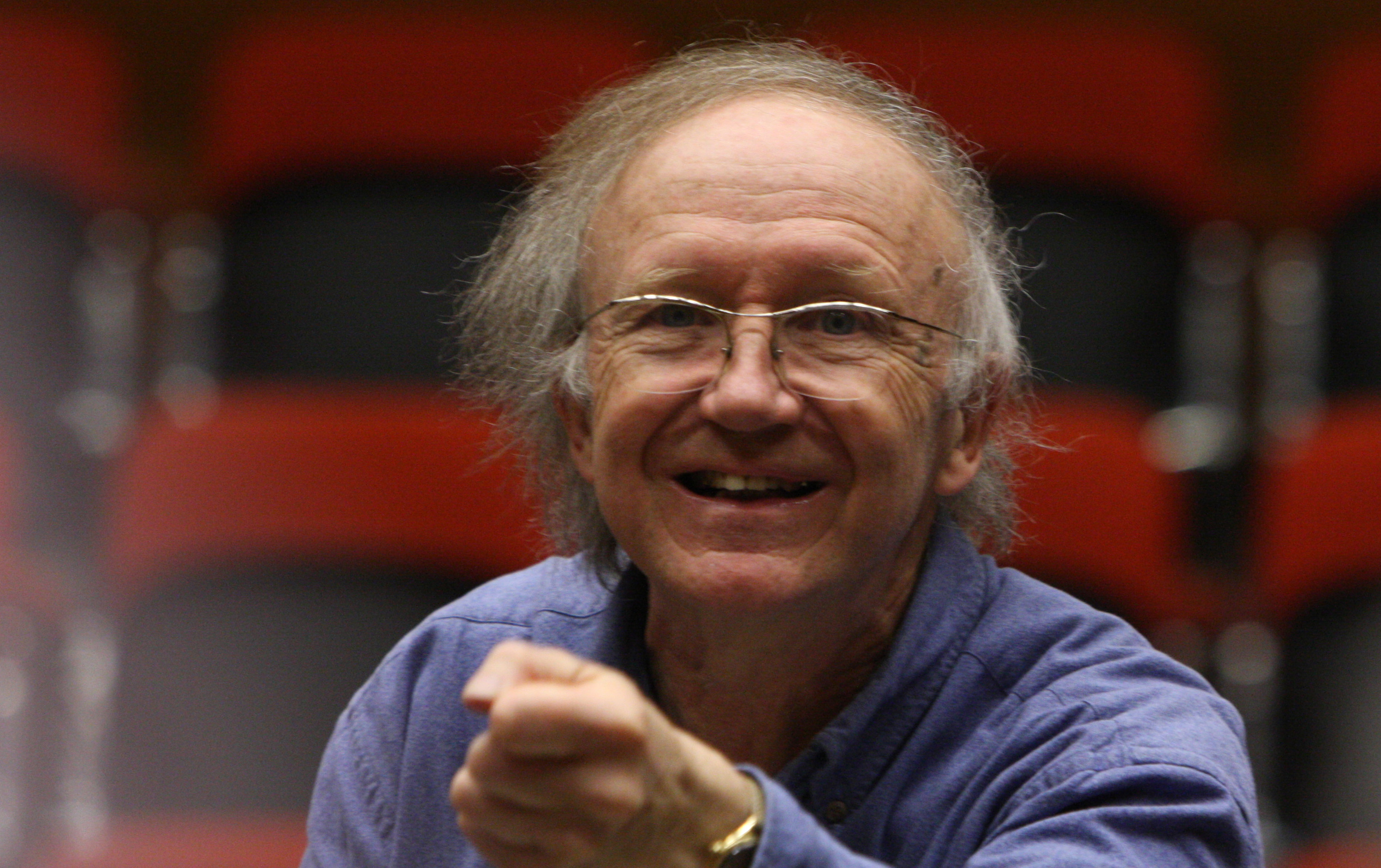
Thomas Meyer
The third seasonal concert presented by the Basel Sinfonietta, directed by Peter Rundel is entitled “Tausendsassa” (Jack-of-all-trades), referring to Swiss composer, oboist, conductor, pianist, etc. Heinz Holliger, whose role and contribution to Swiss music has been decisive over the last six decades. Here is not the place to present our readers the list of the many achievements and qualities gained by this musical personality, from his excellent interpretations to the instrumental inventiveness (the oboe sounds different after Holliger) and compositions, not to mention his enthusiasm for his colleagues and for literature. There wouldn’t be enough room anyway.
I would rather like to emphasize – as a personal reminiscence – the unconditional, fervent passion with which this full-blooded musician engages himself. I first met him when I heard his “Siebengesang” many decades ago. From the first note of the oboe, one remains pervaded by this composition, which has considerably changed over the decades, but without losing its intensity.
Heinz Holliger, (S)irato, Monodie für grosses Orchester (1992), Basel Sinfonietta Musicaltheater Basel 2020
After his 80th birthday in May, Heinz Holliger has been honoured in many ways and places and never lost the occasion to support music by accepting the awards and tributes. The Basel Music Academy is currently focusing on Holliger, although he never permanently studied or taught there and numerous events are scheduled until March 9, while the Vera Oeri Library also houses a highly informative exhibition about the musician.
The composing interpreter
His music is now appearing in several facets at the Basel Sinfonietta as well. On one hand, the composer with his orchestral piece (S)irató from 1992, on the other hand the composing interpreter with two Liszt transcriptions, in which Holliger did not simply orchestrate late piano pieces, but so to speak, continued composing them into the orchestra. In his own words: “an attempt to “push” (transcribe) these two enigmas of the late Liszt – who stand like erratic blocks, but also signposts into the unknown of the late 19th century musical landscape – into my own way of communicating, thinking and so to speak retrieve them from my subconscious”.
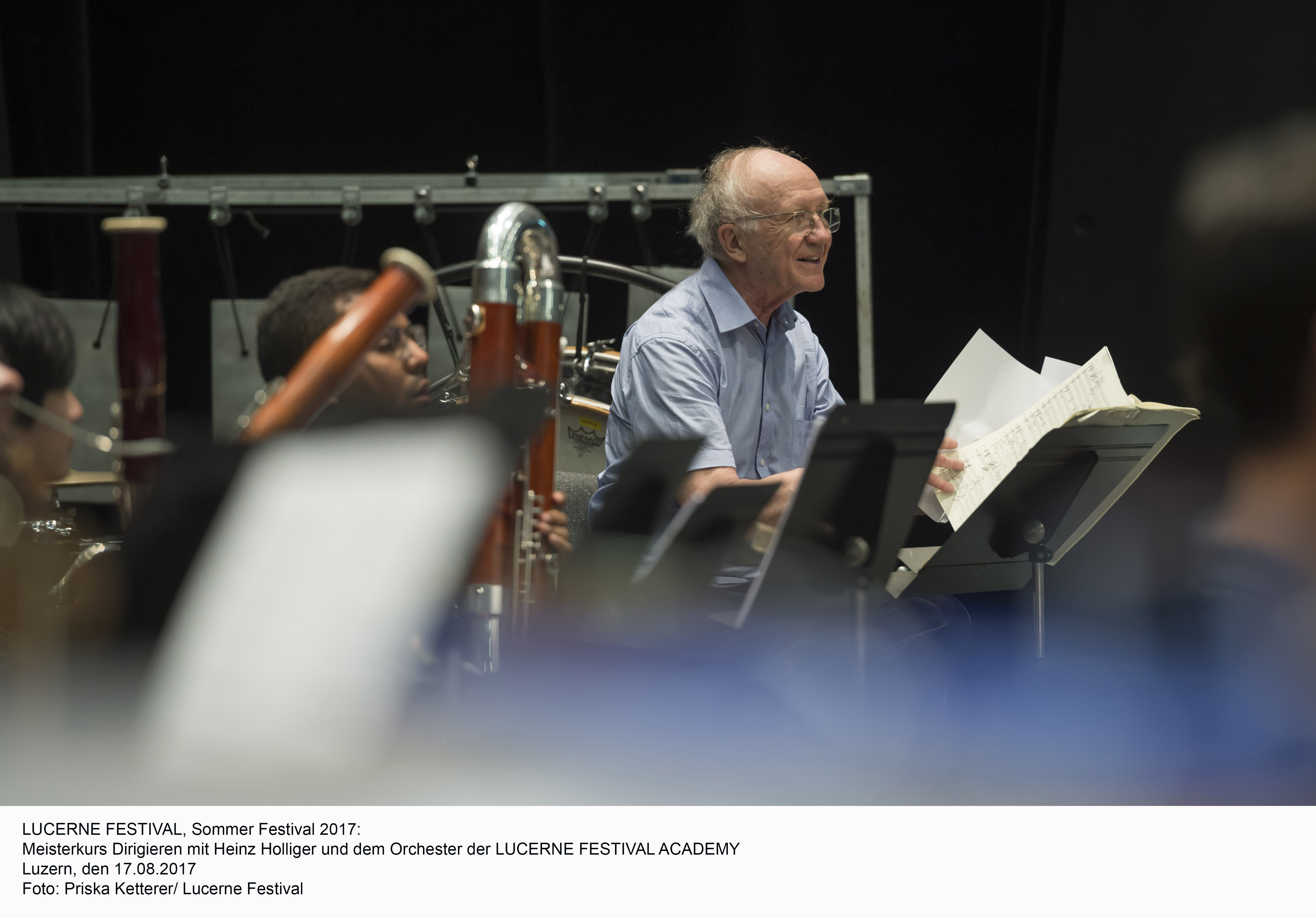
All his life, Holliger committed to the music of his colleagues, commissioned and/or conducted new pieces. Thus, the orchestral work “Tenebrae” by Klaus Huber, who died in 2017, will also be presented.
Klaus Huber, Tenebrae für grosses Orchester (1966/67), Basel Sinfonietta, Musicaltheater Basel 2020
In addition, a very recent piece by German composer, pianist and singer Steffen Wick: “Autobiography” will be performed for the first time in Switzerland, commissioned by the Basel Sinfonietta. The composition aims to describe that moment in which a whole life, condensed, passes by.
Steffen Wick, Autobiography, UA 2020 Basel Sinfonietta
Launch of neo.mx3 in the German-speaking part Switzerland
An excellent opportunity to present neo.mx3.ch – the new Swiss platform for contemporary Swiss music – which SRG has launched as pilot project in 2019.
Neo.mx3.ch offers an overview of the current composed and improvised musical landscape of the entire country, but also covers international events with a connection to Switzerland, such as the recent premiere of Olga Neuwirth’s opera “Orlando” in Vienna with the participation of Swiss percussion soloist Lucas Niggli. A place for previews, portraits and debates, but also for discussions via the neo-blog, moderated by editor Gabrielle Weber. In addition, musicians, ensembles and cultural institutions can present themselves in sound, video, image as well as text.
At last, because neo.mx3.ch finally closes a gap that had been lingering in Swiss music since quite a long time. Save the date in your agenda and get ready for a big surprise, for we will not yet reveal what is planned on February 2, for the official Swiss-German launch.
Thomas Meyer
We are very much looking forward to your comments on the neoblog regarding text, concert, neo.mx3 launch as well as the Holliger series on SRF 2 Kultur!
2.2.2020, 19h, 3. Abo-Konzert Basel Sinfonietta, direction: Peter Rundel, Musicaltheater Basel
18:15h introduction: Florian Hauser talks with Heinz Holliger
Program:
Heinz Holliger, Zwei Liszt-Transkriptionen (1986)
Klaus Huber, Tenebrae (1966/67)
Stephen Wick, Autobiography (2017, CH-Erstaufführung)
Heinz Holliger, (S)Irató (1992)
Lancierung neo.mx3: Surprise-Talk:
Florian Hauser talks with:
Barbara Gysi, head radios & Musik SRF Kultur
Gabrielle Weber, curator neo.mx3
Katharina Rosenberger, composer
Basel Sinfonietta, Heinz Holliger, sonic space Basel / FHNW, Mondrian Ensemble, Klaus Huber, Steffen Wick
SRF 2 Kultur:
Kultur-Aktualität, 21.6.2019: Neue Schweizer Plattform für zeitgenössische Musik
Broadcasts SRF 2 Kultur:
Musik unserer Zeit, Mittwoch, 15.1.2020, 20h: Heinz Holliger und die Literatur
Neue Musik im Konzert, Mittwoch, 15.1.2020, 21h: Portraitkonzert Heinz Holliger
Musikmagazin mit Moritz Weber, Aktuell, 1./2.2.2020
neo-profiles: Heinz Holliger, Basel Sinfonietta, Klaus Huber, Mondrian Ensemble, Katharina Rosenberger
Melancholic elegance
Concerto en Sol – the new cello concerto by grandmaster Wolfgang Rihm – will start its world premiere tour from January 20 onwards. “Sol” stands not only for the key but is also referring to the exceptional cellist Sol Gabetta, to whom the work is dedicated. In this interview Wolfgang Rihm talks about the background and the particular period of his life in which the piece was composed, but also tells us about inspiration and interpretation of his works.
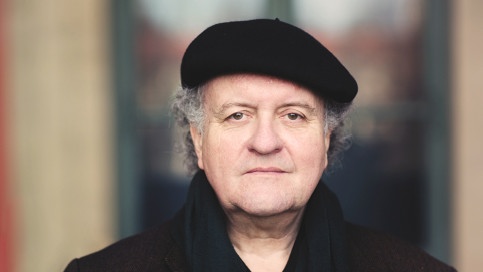
Gabrielle Weber
Mr Rihm, after being awarded the author prize for your lifetime achievement at the beginning of 2019, your creative frenzy continues. You are at currently in high demand as composer, covered with prizes and flooded with commissions and requests: What does it take to secure a commission and how did the new work for the Basel Chamber Orchestra come about?
Sol Gabetta asked me if I wanted to write a concert piece for her more than five years ago. I was very happy and set to work, but a serious illness got in the way and the sketches were left on the table. When I re-emerged in 2017, I immediately tried to continue the piece, which worked fine and I enjoyed it very much, so I was able to complete the concerto in the same year.
What is the piece’s central idea?
It definitely relates on its dedicatee, whose melancholic elegance and powerful lines I appreciate very much. I didn’t want to come up with heavy artillery, but rather linger in the area of transparency and not outwardly turned mobility. What I liked best was the idea that everything unfolds from a vocal perspective – but this is something that applies to almost all my concert works.
Inspiration – a form of enthusiasm
You once said: ‘Inspiration is the only thing an artist possesses – it is all about putting inspiration into action’: What does ‘inspiration’ mean to you?
Inspiration? Maybe it’s a way of being enthusiastic? I can sense this in the fact that the many decisions involved can eventually lead to alternative paths that I would never have thought about at first. My advice: if an artist wants to be “consistent”, he should not want to be inspired – that would only lead to confusion. But since I’m very good at confusion…
Wolfgang Rihm, Sub-Kontur. Für Orchester (1975), Lucerne Festival Contemporary Orchestra, artistic director Sylvain Cambreling, Lucerne Festival, KKL, 3.September 2022.
The solo part is tailor-composed for Argentinian-Swiss cellist Sol Gabetta. Gabetta’s playing style is characterized by both temperament and intimacy. She says that she almost dances on the cello and inwardly sings while playing: (How) were you inspired by a distinctive interpreter like Sol Gabetta?
I try to imagine how the interpreter would handle and respond to my notes – other than that, I write what I imagine as music.
Wolfgang Rihm Marsyas, Rhapsodie für Trompete mit Schlagzeug und Orchester (1998-99), Lucerne Festival Academy, Reinhold Friedrich, Trompete, Robyn Schulkowsky, Schlagzeug, artistic director: George Benjamin, Lucerne Festival, KKL, 1.September 2019.
You usually demand ‘the extreme’ from your performers, whereby things are dared that were unimaginable before the collaboration – how do you get such ‘hidden’ potential out of the performers?
You have to ask the performers that… I think the most important thing is to have something to interpret at all, opening several unexpected possibilities, even to the composer. Interpretation is the opposite of ‘execution’. The best interpretation is probably the one that leaves a lot of incalculable things open, without stuffing the listeners with apparent certainties.
Wolfgang Rihm, Dis-Kontur für grosses Orchester (1974/1984), UA Lucerne Festival, Lucerne Festival Contemporary Orchestra, Leitung Riccardo Chailly, KKL, 8.September 2019.
Melancholy – yes. But not too much darkness.
So every new work bears something unexpected for you too: were you surprised yourself while composing ‘Concerto en Sol’?
I hope that the piece develops and flows naturally. As if an event were to emerge out of context and give rise to the next one.
What surprised me was that after a long experience of illness three years ago, I was able to keep a relative state of ease throughout the piece. Melancholy – yes. But not too much darkness.
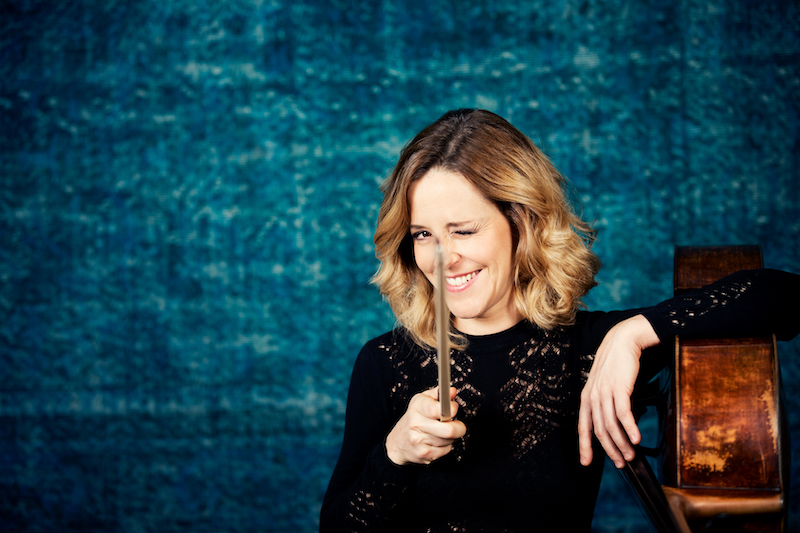
What can we expect in terms of sound and look forward to in particular?
The possibility of some kind of casual – unspectacular achievement…
Interview Gabrielle Weber
The program combines Igor Stravinsky’s “Concerto in Re”, composed for Paul Sacher in 1947 and commissioned by KOB for the orchestra’s 20th anniversary, with Wolfgang Rihm’s “Concerto en Sol” and will be complemented by Felix Mendelssohn’s “Scottish Symphony”.
The Geneva concert will be recorded by RTS andConcerto en Sol for Sol Gabetta made available immediately on neo.mx3 in full length.
Concert program
Concerto für Sol, Kammerorchester Basel, Leitung Sylvain Cambreling
Igor Strawinsky, Concerto in Re für Paul Sacher, UA KOB 1947
Wolfgang Rihm, Concerto en Sol für Sol Gabetta, Auftragswerk KOB, UA
Felix Mendelssohn Bartholdy, Sinfonie Nr. 3 a-moll Op. 56 (‘Schottische‘)
concerts
Monday, 20.1.2020, 20h: Genf, Victoria Hall
Tuesday, 21.1.2020, 19:30h: Zürich, Tonhalle Maag
Wednesday, 22.1.2020, 19:30h: Bern, Kultur Casino
Thursday, 23.1.2020, 19:30h: Basel, Martinskirche
Friday, 24.1.2020, 20:30h: Grenoble | F, MC2: Auditorium
Sunday, 26.1.2020, 20h: Freiburg | D, Konzerthaus
broaadcaasts SRG:
21.1.2020: Kritik UA Genf in Kultur kompakt
22.1.2020, 22h: SRF Kulturplatz
25.1.2020, 10h / 26.1., 20h: Musikmagazin, Café mit Sol Gabetta
30.1.2020, 20h: RTS Espace deux: Le concert du jeudi
20.2.2020, 20h: SRF 2 Kultur: Im Konzertsaal
neo-profiles: Kammerorchester Basel, Lucerne Festival Academy, Lucerne Festival Alumni, Sol Gabetta, Wolfgang Rihm
GRINM action group is evolving
More diverse and gender-equity oriented practices in New Music: Vision, Option or Must?
In mid-November, three days of meetings and conferences with international figures were held at the Zurich University of the Arts (ZHdK) in order to exchange experiences and visions regarding the future.
‘Positionen’-Editor Bastian Zimmermann was there and draws his conclusions.
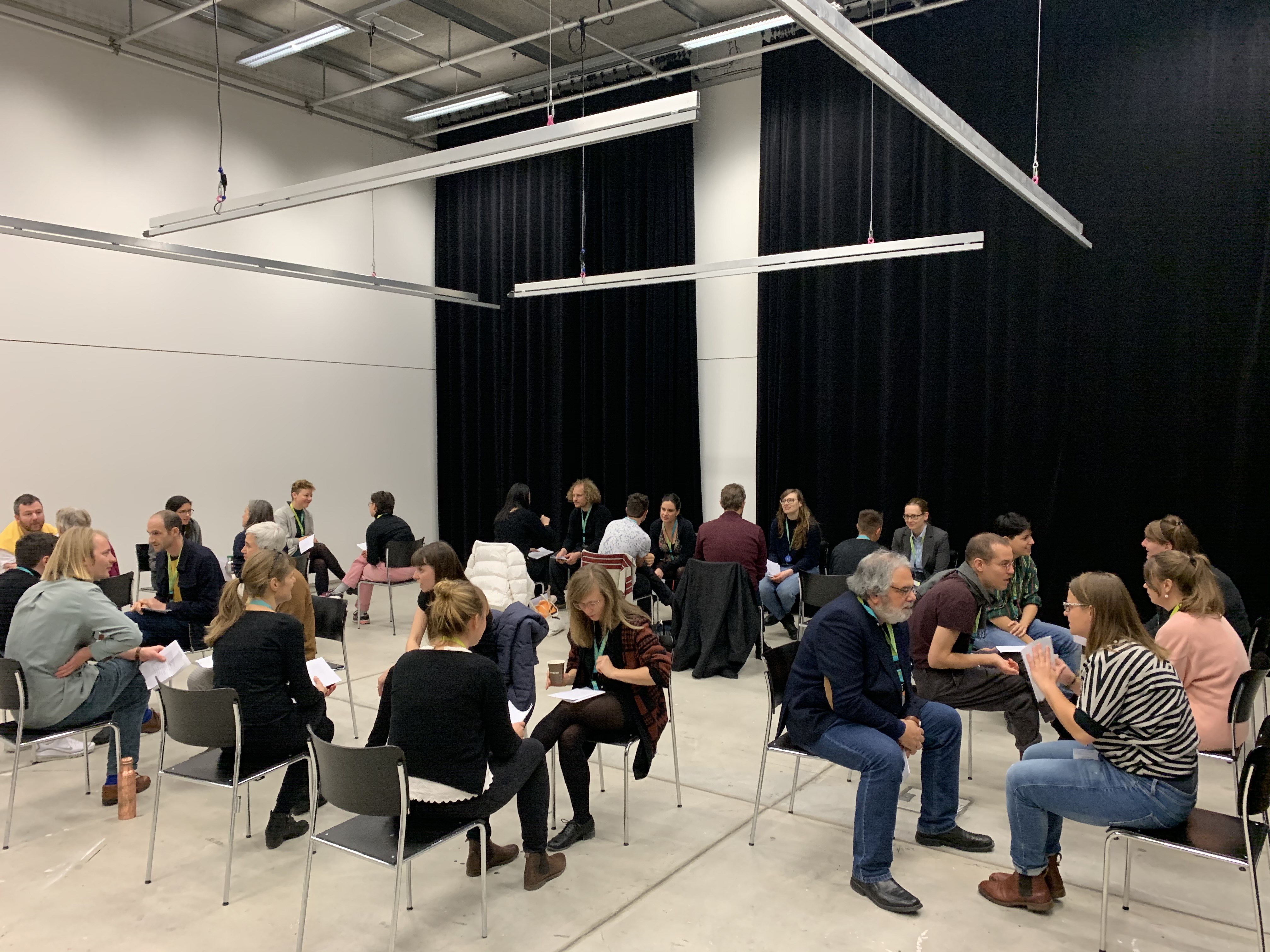 GRiNM Network-Conference ZHdK © Gender Relations in New Music/ Gözde Filinta
GRiNM Network-Conference ZHdK © Gender Relations in New Music/ Gözde Filinta
Quite far from the first and kind of subversive meeting held in a camping tent during the Darmstadt Summer Courses 2016, the GRiNM (Gender Relations in New Music) group is rapidly growing into an important platform where gender and diversity issues in contemporary music can be addressed and debated. The loose group of committed protagonists in the field of contemporary music met at the ZHdK and for the first time without the need to bind to another New Music festival.
They came together from Berlin of course, but also different parts of Europe and even Canada, with the mutual goal to present projects and strategies aiming at the development of a more diverse musical world based on gender equity, learn from each other and – at best – initiate and decide on new projects together. Although the rather unpleasant wish of an “outcome” usually hovers over so-called “network meetings”, this weekend undeniably enjoyed some kind of general “flow”. This may well be due to the fact that the GRiNM co-founders Meredith Nicoll, Brandon Farnsworth, Lucien Danzeisen or Rosanna Lovell, as well as all those who joined them, are driven by a real concern: The horrendous imbalance in the music business with partly 100 percent white male economy to be pointed out and concretely brought into an opposite “even harder imbalance”. Through actions such as statistical analyses, their publication and a call for change, GRiNM drew attention to the imbalance so successfully that currently vacant artistic leadership positions are hardly filled ‘only’ by men.
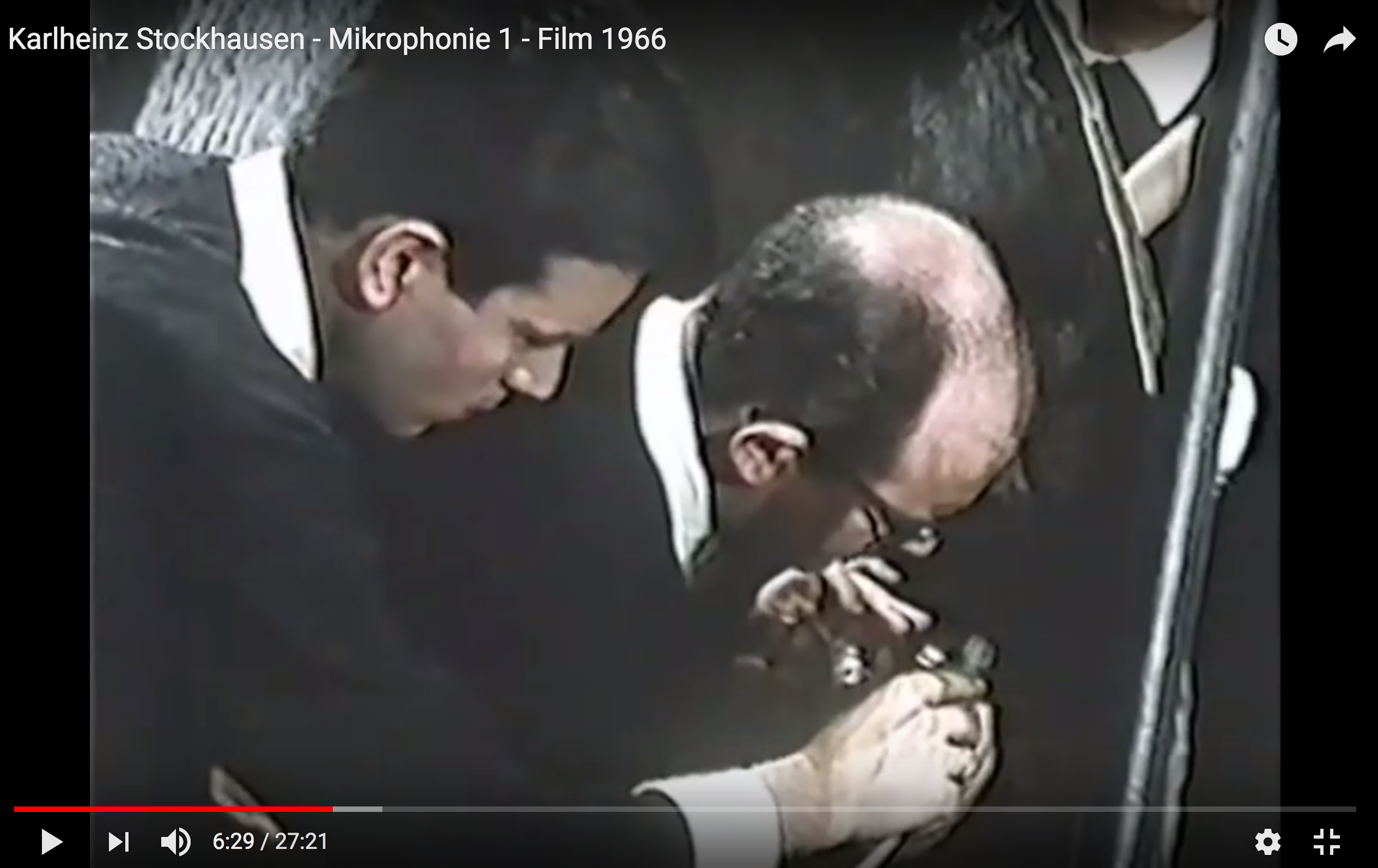
As a result of this attention, numerous leading male actors gathered in Zurich to reflect on the music business as well as their own work. Thorbjørn Tønder Hansen from the Ultima Festival in Oslo for example, who reported on the challenges of implementing changes or experiments like an all-female festival into a large complex of cooperation partners and donors. Dahlia Borsche discussed these difficulties within the DAAD (Deutscher Akademischer Austauschdienst).
The network for women and non-binary persons Konstmusiksystrar (Art-Music-Sisters), represented by Anna Jackobsson and Rosanna Gunnarsson, presented, among other topics, a possible radical breaking through statute regarding common curatorial conventions: The idea to chose works received through calls for application randomly – which is in many ways challenging for the current mindset, an issue that has been subsequently discussed further.
 Konstmusiksystrar – sisters in contemporary music ©Hampus Andersson
Konstmusiksystrar – sisters in contemporary music ©Hampus Andersson
There have also been attempts to discuss a “Global Music Network Initiative”, but this turned out to be a somewhat utopian undertaking with regard to inclusion and exclusion of musical genres and practices.
Each one of the three days started with a keynote speech, on the first day by Christina Scharff, a brilliant rhetorical and analytical lecturer at King’s College in London, on the thought of gender categories in contemporary music. Most productive, however, were the multiple initiated, moderated, but still open discussions and round tables among some 40 participants: On the basis of individual statements, such as “how to deal with the strengthening right-wing movement in the curatorial/artistic context”, the group discussed solutions in a lively and focused manner. And all this within a GRiNM framework in which more and more people who want to change something in the hierarchically organized music business will be able to gather in the future.
Bastian Zimmermann
Some of the most recent engagements on the Swiss side were presented by Serge Vuille for Contrechamps Geneve, ZHdK and FHNW, Global Music Network Norient, Katharina Rosenberger from San Diego or SONART, Musikschaffende Schweiz.
Überläufer – Eine performative Klang-Raum-Komposition zu Wandel und Migration (Trailer), UA 2019 ©ZeitRäume Basel 2019
There is still quite some work to be done in Switzerland: Join in the discussion, share your experiences, thoughts and suggestions here on this blog. We are happy to exchange views on gender and diversity in New Music.
Whishing you a great start into the new year!
Gabrielle Weber, Editor/Curator of neo.mx3.ch
GRiNM, positionen.Berlin, Ensemble Contrechamps Genève, FHNW | Sonic Space Basel, Norient-Space, SONART – Musikschaffende Schweiz, Katharina Rosenberger
Read also: Neo-Blog:
GRiNM? = [GRiNäM]!: Interview with Brandon Farnsworth by Gabrielle Weber
Ensemble Contrechamps Genève – Expérimentation et héritage: Interview Serge Vuille / Contrechamps by Gabrielle Weber
Neo-profiles: Zürcher Hochschule der Künste, Contrechamps, Festival ZeitRäume Basel, Katharina Rosenberger
Contemporary music in Ticino
Autumn is when the musical seasons traditionally start, in Ticino as elsewhere. Contemporary music has its own niche in the Italian-speaking part of Switzerland, having a peculiar geographical structure with a relatively large area and uneven distribution of population.
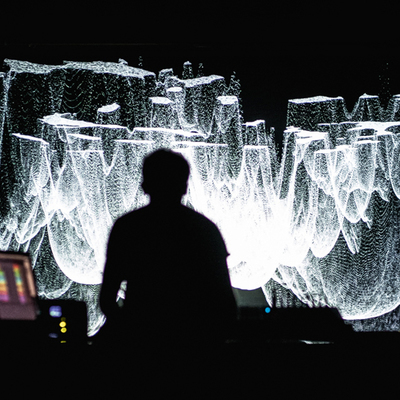
Nadir Vassena
Except for punctual or short events, the continuous presences, spread throughout the year are actually few. Among them, two in particular have marked and are still marking the cultural diversity of Italian-speaking Switzerland.
Oggimusica
The first is the 1977 founded association Oggimusica, which has distinguished itself for years as the only institution organizing events in the most diverse present genres: from contemporary music to jazz, from rock to improvisation and world music. Many important artists, now considered part of the musical history of the second half of the twentieth century, such as Philip Glass, Karlheinz Stockhausen, Cathy Berberian, Steve Reich, Egberto Gismonti, Fred Frith, Laurie Anderson, Iva Bittova, Irène Schweizer, Luciano Berio and many others have been invited – often for the first and only time – to Ticino by Oggimusica.
Alberto Barberis: Oratorio Virtuale, A Stradella reloaded
The peripheral situation of the Italian-speaking part of Switzerland was obviously very different at the end of the seventies compared to the present day, but Oggimusica remains one of the few opportunities for musicians from other Swiss regions to have their contemporary voice heard in Ticino. During this 2019-2020 season, for example, this will be the case for the Neuma ensemble and their interplay between the voices and saxophones of Dominique Vellard and Giacomo Schiavo (tenors) and Pierre-Stéphane Meugé and Marcus Weiss (saxophones), skilfully moving between ancient and contemporary music, but also for the improvised music of Âme Sèche (Walter Fähndrich, Remo Schnyder, Christy Doran, Benedikt von der Mühll) or the Mondrian Ensemble with its “no reality” programme. These are just a few “Swiss examples” of programming.
Nadir Vassena, Markus Weiss, ‘Materia oscura’
EAR
Another more recent initiative, which has reached its fourth season, is EAR: Electro Acoustic Room. Music as pure listening experience. Acousmatic music is a young art form, originating from the radio, born only a hundred years ago. If the label “Contemporary music” is already ambiguous, stating everything and nothing at the same time, that of “electronic music” is perhaps even more so. The soul behind EAR can be seen, or rather heard, from the programming. It’s not club music, nor 90’s raves or Zurich’s Street Parade, but rather the search for a moment dedicated to intimate, concentrated listening. The verb “to hear” (sentire) can also mean or be synonym of “to feel” in the Italian language and there is an archaic link between the skin and the hearing related to the embryo’s development, as both organs – ear and skin – develop from the same germ layer. Just as touching always gives a feeling to be touched, when speaking, one can always hear the own voice. Knowing how to listen, to oneself and the others, is underestimated and should never be taken for granted as it is the foundation not only of musical experience, but also a fundamental aspect in the sphere of human relations.
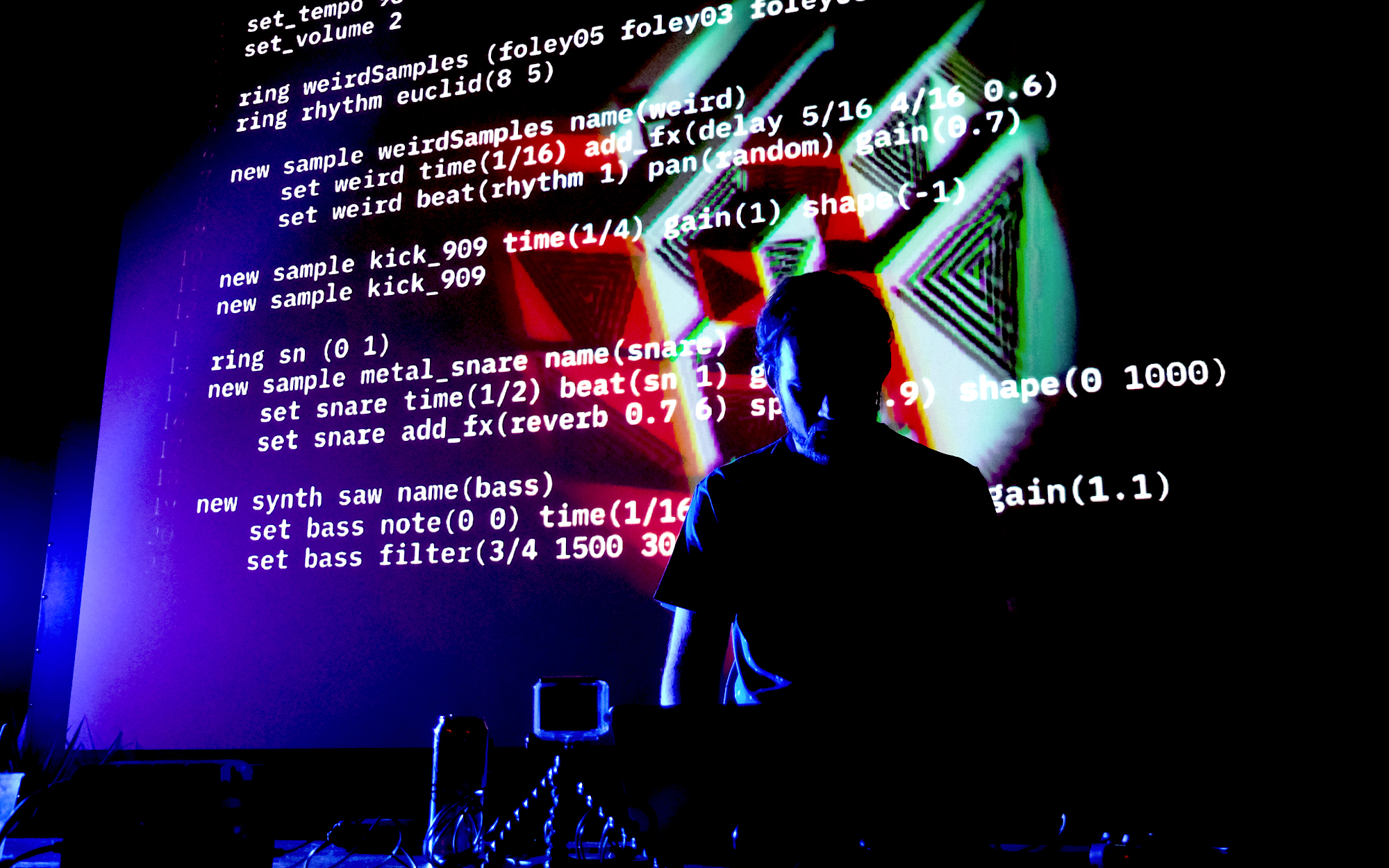
RSI Rete due: Neo
Radio remains the privileged space to talk about (and listen to) these issues, both by vocation and institutional duty. It is therefore a pleasure to learn, that from October 29, 2019, every last Tuesday of the month at 20:05, Retedue of RSI will make room for contemporary music with ‘neo’, a programme curated by Valentina Bensi, that will look for and find material as well as themes on neo.mx3.ch, the new SRG SSR platform for Swiss contemporary music.
Nadir Vassena
Esther Flückiger, Verso Nikà, 2019
Radio broadcasts neo / RSI, curated by Valentina Bensi:
Next episode:
Monday, December 23: meet Esther Flückiger, composer, representing Switzerland at the ISCM World Music Days 2020 in New Zealand.
Tuesday, October 29: meet Alberto Barberis, new artistic director of Oggimusica
Concerts Oggimusica: LAC teatrostudio, 12.1. / 16.2. / 1.4. / 15.5. / 5.6.2020
Concerts EAR: LAC teatrostudio, 28.2. / 20.3. / 24.4.2020
Oggimusica, EAR, ISCM, Esther Flückiger, Mondrian Ensemble, Alberto Barberis, Timo Hoogland
Neo-profiles: Oggimusica, Mondrian Ensemble, Marcus Weiss, Nadir Vassena, Alberto Barberis, Esther Flückiger
Man – woman – man – woman or “No fizzy powder drink.”
Olga Neuwirth’s ‘Opus summum’ Orlando is in the home stretch at Vienna’s Staatsoper, taking an institution known for being rooted in tradition on two new ventures. For the first time in its 150-year history, an opera has been commissioned to a woman and the Staatsoper shows commitment to a diverse society. Neuwirth tells Virginia Woolf’s story of a journey through time and gender over centuries up to the present day.
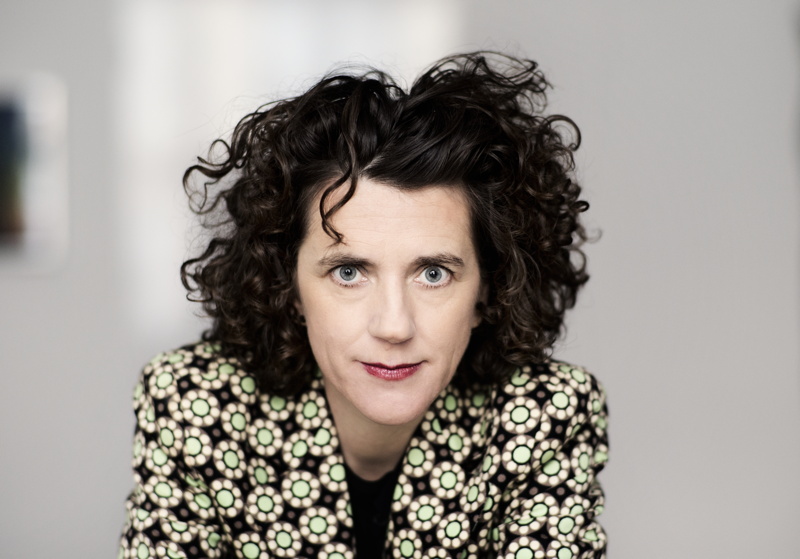
Gabrielle Weber
Lucas Niggli is involved as percussion soloist and reports directly from Vienna on translating the story into music as well as on the interaction with the Vienna Philharmonic Orchestra.
“Orlando is a huge work transcending all genre boundaries, a very big spectacle and it is remarkable that something like that can be realised in such a traditionally oriented Opera house, especially in this day and age”. It needs a great deal of nerve and commitment, because the orchestra is very challenged. “Such a visionary piece of work cannot be consumed without friction, like some kind of fizzy powder drink. It requires hard work.” The second violins are microtonally tuned 60 cents lower for instance. The Vienna Philharmonic Orchestra is not used to such things, which create a great richness in colours though. “It is a real pleasure to listen to,” Niggli says enthusiastically.
Niggli plays in costume for three extended sequences and is pushed on stage on a carriage together with his drums. Neuwirth wrote the drum part with drum-specific skills, alternating between “moments of freedom, big-band-like kicks and razor-sharp passages”. The interplay with the Vienna Philharmonic is particularly challenging in the sequences in which he doesn’t find himself playing in the pit, as “the Philharmoniker are famous for their laid back playing, while I am usually very focused on the downbeat”.
Lucas Niggli Solo, Alchemia Garden, 2017
The extremely modern plot portrays a personality that – in the character of Orlando – has completely changed over the centuries, also in terms of gender.
How is this translated into music? In Neuwirth’s story, Orlando also becomes a mother – her child is given by the queer singer-performer Justin Vivian Bond.
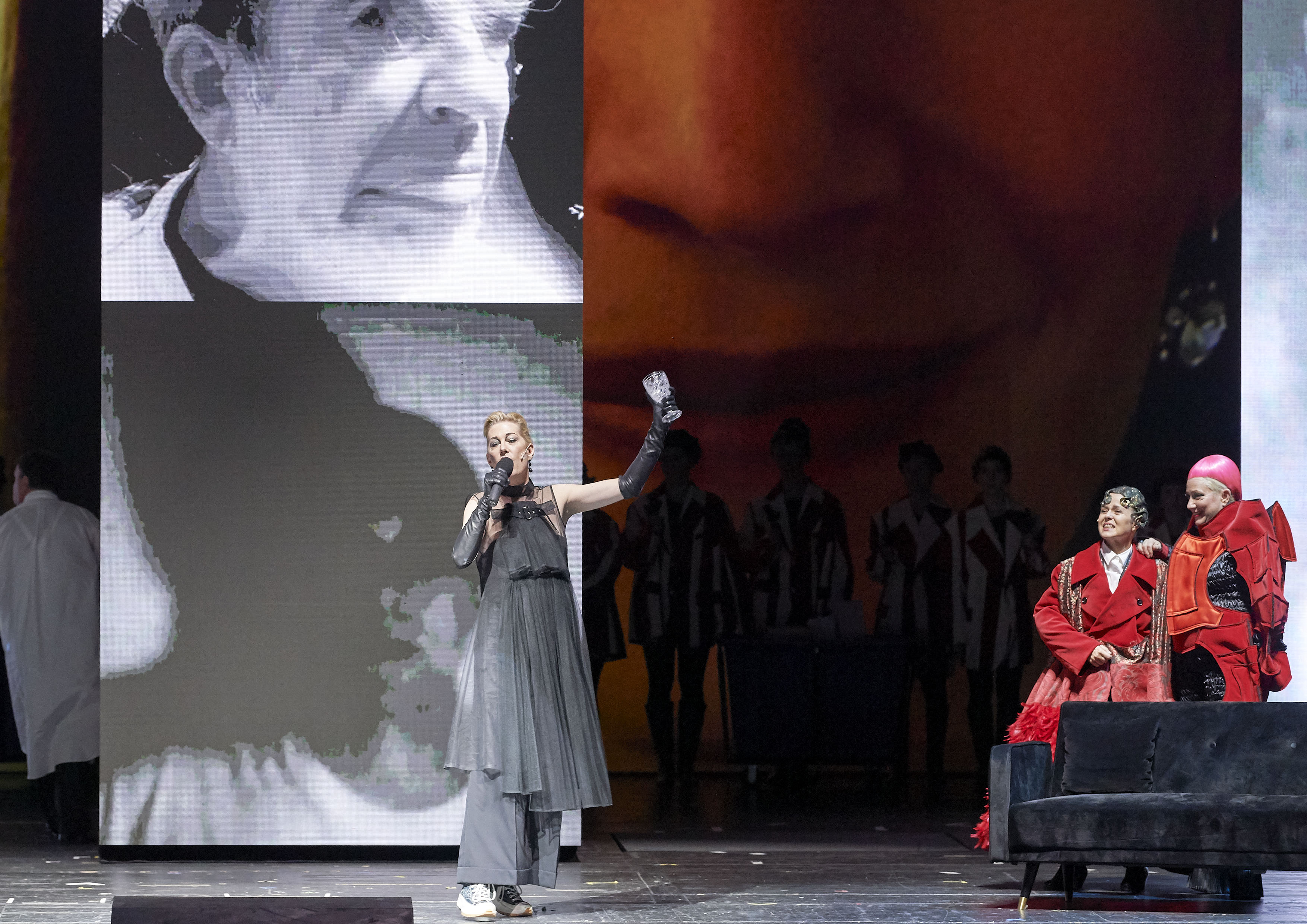
On the other hand, Orlando’s journey throughout the centuries is expressed with blunt and cheeky music history quotations. “There are quotes from Monteverdi, Rossini, Stravinsky to Lady Gaga and a nice passage where I’m allowed to improvise with an electronic sample,” explains Niggli. Neuwirth has precise and courageous ideas about the combination of musical genres. “She almost performs a genre-bending in parallel with the narrative gender-bending: Neuwirth’s music is a bit like chewing gum: very elastic, but still cohesive.”
Olga Neuwirth, Eleanor (extrait) 2014, Ensemble intercontemporain, Matthias Pintscher (conductor), Della Miles (voice)
Drums, electric guitar, wind instruments, sometimes jazz brass instruments play an important role also in other works by Neuwirth. “This is why she also composed a solo part for jazz percussion in this ‘Opus summum’, as she defines it herself. This is how I got this great, exiting assignment.”
Interview Annelis Berger, 2.12.19
In addition to conductor Matthias Pintscher, almost the entire artistic management team is female, with – for instance – particularly exciting costumes by Rei Kawakubo, chief designer of the fashion label “Comme les garçons”.
Gabrielle Weber
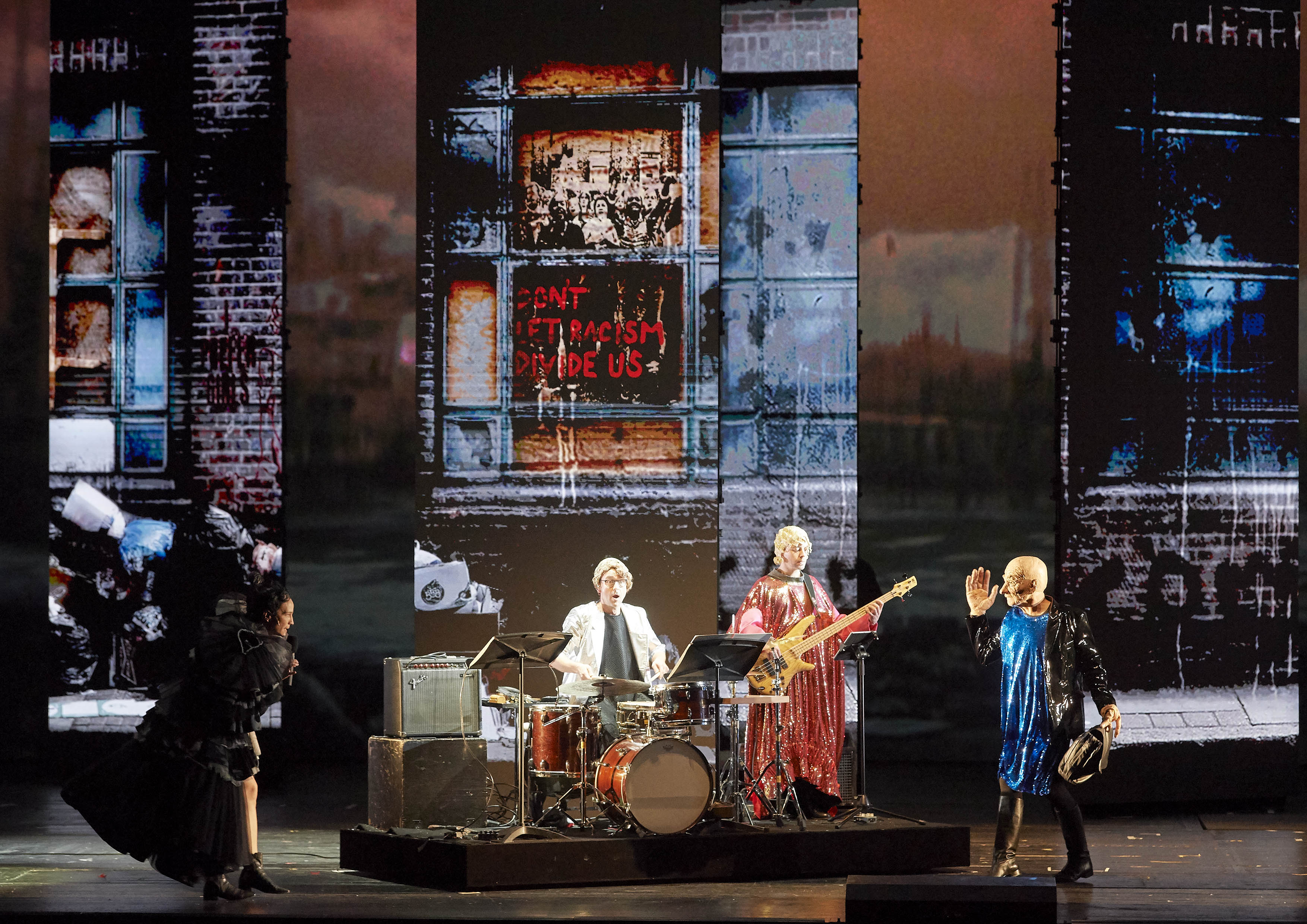
“For it is a love of oddities, of the paradoxical, the grotesque, virtuosity, exaltation and exaggeration that are the essence of this fictional biography, which aims to create a new morphology of a narration which is in a constant flow to create a fluid form. At all times it is also about (…) a sophisticated and highly subtle form of sexual attraction that rejects being pigeonholed in any one gender. As well as about refusing to be patronised and treated in a condescending manner – something that continually happens to women, with no end in sight” (Olga Neuwirth).
Wiener Staatsoper, Lucas Niggli, Olga Neuwirth, Justin Vivian Bond
Orlando @ Wiener Staatsoper: WP: 8.12.2019
further performances: 11., 14., 18., 20.12.2019
The performance of 18 December 2019 will be live-streamed on WIENER STAATSOPER live at home worldwide in HD.
Broadcaast SRF 2 Kultur: Musikmagazin, 7./8.12.2019
neo-profile: Lucas Niggli


